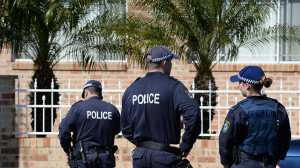By Max Bartels
Impunity Watch Reporter, Oceania
Canberra, Australia
The Australian Senate has passed a new bill in response to the recent foreign and domestic terrorist threats facing Australia. The new legislation will make it easier for intelligence and law enforcement agencies to access the personal information on computers and cell phones of Australian citizens overseas. The bill would also create an increased penalty of up to 10 years in prison for disclosing secret information, this is especially concerning for journalists, who are concerned that they will be targeted with these new penalties. Lastly the new legislation gives civil and criminal immunity to Australian intelligence agents. The government was quick to comment that the immunity would not be extended to those agents that caused death, serious injury, engaged in sexual offenses or severe damage to property.

The Parliament has pushed for these new laws in response to major counter terrorist operations in recent weeks, where Australian law enforcement and intelligence agencies foiled an ISIS plot to stage a public beheading in Sydney. There have also been smaller incidents, including a number of arrests involving ISIS recruiters operating in Australia. The Australian response was to lift restrictions on the intelligence community however; the political opposition parties are voicing their disapproval. Both the Liberal Democratic Party as well as the Green Party has stated that these new laws will effectively restrict freedom of the press. The major concern is that if the press is not able to report on intelligence activities then democracy in Australia will be undermined.
Another major concern of the opposition groups was that torture could be included in the new laws. Prime Minister Tony Abbott gave a speech in response to this rumor that torture would not be included in the new legislation and that it will remain outlawed in Australia. The legal immunity was also explicitly stated to not cover incidents of torture. It has only been in the last few weeks that Australia responded to a call from the U.S. to aide international efforts in combating ISIS. In response to that call Australia deployed troops abroad, with Prime Minister Tony Abbott stating that Australia was not out of the reach of the ISIS threat. Shortly after the deployment announcement, ISIS became very active in Australia, evident from a foiled terrorist plot as well as a slew of arrests. Now Australia has adapted their laws to face the new threat but many worry that it will lead to injustice.
For more information, please see:
SBS — What Will the Counter- Terror Laws Mean for Australians? — 24 September 2014